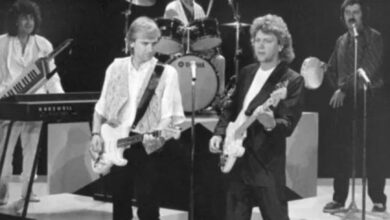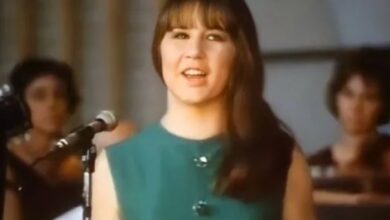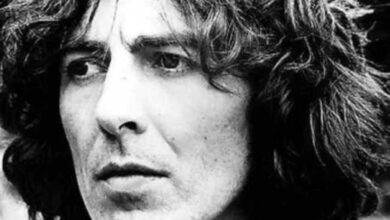Roberta Flack’s ‘The First Time Ever I Saw Your Face’ Redefined Romantic Ballads in 1972 with Unprecedented Emotional Depth
Released in 1972, “The First Time Ever I Saw Your Face” by Roberta Flack became an unexpected yet monumental success. Its slow, haunting delivery defied the fast-paced trends of radio at the time, and yet it climbed steadily to the number one spot on the Billboard Hot 100, where it remained for six weeks. The song wasn’t just a hit; it was a seismic shift in how emotion could be conveyed in mainstream music. At a time when pop and rock dominated the charts with flamboyance, Flack’s gentle, restrained performance invited listeners into a quiet, intimate world—and they responded with awe.
Roberta Flack, born in North Carolina and raised in Virginia, was already an accomplished pianist and classically trained musician before she entered the mainstream spotlight. Her background was in classical music and jazz, and she carried a kind of quiet sophistication that set her apart from many contemporaries. Before this song’s breakthrough, Flack had released two albums that were critically praised but commercially modest in performance. Her style—introspective, elegant, and deliberate—required time and space, qualities often at odds with early 70s radio formatting.
Interestingly, “The First Time Ever I Saw Your Face” was not written by Flack. The song was penned in the 1950s by British political folk singer Ewan MacColl for his lover, Peggy Seeger. MacColl reportedly disliked every cover version except the one Seeger herself performed. Roberta Flack’s version changed that narrative. She discovered the song while searching for deeper material and first recorded it in 1969 for her album First Take, not as a commercial hit but as an artistic statement. It lingered in obscurity until a chance inclusion in a Clint Eastwood film would change everything.
The song’s transformation into a cultural phenomenon began when Eastwood featured it in a love scene in his 1971 directorial debut Play Misty for Me. Struck by the track’s emotional intensity, Eastwood insisted on using it despite studio protests about its slow pace. Flack’s version was not re-recorded but lifted directly from her 1969 album. Her measured tempo, the spare arrangement with subtle guitar and piano, and her breathy vocal phrasing all contributed to a hypnotic atmosphere that deeply moved audiences.
Following the film’s release, Atlantic Records reissued the song as a single in early 1972. It caught fire almost immediately, resonating with listeners during a time of political unrest and cultural change. The single topped the Billboard Hot 100, the Easy Listening chart, and even crossed into the R&B realm—an impressive feat for a song that was essentially a stripped-down folk ballad. It won the Grammy Awards for Record of the Year and Song of the Year in 1973, cementing its place in American music history.
Culturally, the song altered the expectations of a romantic ballad. Its pacing and vocal restraint suggested a kind of intimacy that pop music had rarely captured. It wasn’t about theatrical passion—it was about vulnerability. In doing so, it opened the door for a wave of softer, introspective tracks that would define the 1970s singer-songwriter movement. Artists like Carole King, James Taylor, and even Barbra Streisand would soon tread similar emotional territory.
For Roberta Flack, the song’s success catapulted her into international fame. She became one of the few Black female artists of the time to achieve crossover success without altering her artistic integrity. The track led to invitations for major performances, television appearances, and collaborations with other top artists. It also paved the way for her later hits, including the timeless duet “Where Is the Love” with Donny Hathaway.
The influence of “The First Time Ever I Saw Your Face” extended beyond Flack’s career. It became a staple in weddings, films, and tribute concerts. The song has been covered by a diverse range of artists, including Johnny Cash, Leona Lewis, and George Michael. Each brought their own interpretation, but none managed to replicate the emotional stillness and intensity of Flack’s version. That original recording remains definitive.
The song’s timing in Roberta Flack’s career was also poignant. Her calm presence and musicality provided a sharp contrast to the turbulence of the era, making her a symbol of quiet resilience. In the wake of the Vietnam War, the Civil Rights Movement, and changing social norms, her performance offered a space for reflection and personal connection.
Over the years, “The First Time Ever I Saw Your Face” has earned a reputation as one of the most romantic and haunting songs ever recorded. It consistently appears on “greatest love songs” lists and continues to receive airplay across generations. Its longevity is rooted not in nostalgia, but in its timeless ability to evoke profound emotion with the simplest of tools: voice, melody, and honesty.
Moreover, the track influenced how producers and arrangers approached ballads. The song’s minimal instrumentation and slow tempo challenged the assumption that radio hits needed to be high-energy. In doing so, it created a lane for ballads that were cinematic, spacious, and emotionally raw—a style that would influence artists for decades.
Though Ewan MacColl never approved of most covers of his song, even he might have softened had he witnessed the global impact of Flack’s interpretation. Her recording reintroduced the song to a new generation, redefining its meaning not only as a personal love letter but as a universal expression of deep affection.
In conclusion, Roberta Flack’s “The First Time Ever I Saw Your Face” stands as a transformative moment in music history. It bridged genres, broke conventions, and gave voice to a quieter kind of passion. Even decades later, its impact is felt wherever listeners seek truth in a song. Its beauty lies in its simplicity—and in that simplicity, it found immortality.





